Do Bass Stop Biting at a Certain Temperature? 10 Details to Know
When you look at bass fishing in general, you’ll typically see the majority of people fishing during the spring, cooler days during the summer, and the beginning of fall. Then, practically no casual fishermen will even attempt to grab their rods during late fall and the entirety of winter, because they believe the bass simply won’t bite.
Is that necessary? Is it possible to catch bass during the hottest or coldest temperatures? Well, it’s not as clear-cut as you might think.
A largemouth bass does bite in some pretty extreme temperature conditions. Otherwise, the most prominent bass-fishing tournament wouldn’t hold its top-tier competition in the dead of winter. However, there are a lot of things to consider before determining whether it's worth your time to grab a rod or not.
Today, we’ll go over those details in-depth to help you develop a better understanding of how the temperature affects the behavior of bass, and why bass stop biting at certain temperatures.
The General Range of Acceptable Temperatures for Bass Fishing
Before we get into the extreme side of things, we want to go over the range that is generally seen as prime bass fishing weather. It’s actually a bit broader than the average casual fisherman might think.
In general, bass behavior doesn't tend to change too much between 65 degrees and 80 degrees in terms of the temperature outside. That makes sense because that tends to cover the times of year that most casual fishermen will be on the water; it's not too hot to be uncomfortable, and on the low end, it's not too cold. This is "fair weather" fishing. You can count on the bulk of casual fishermen fleeing to their couches and other indoor activities once those temperature limits are exceeded, but contrary to popular opinion, that's not because of the bass. That has more to do with their own personal limits and desire for comfortable fishing experiences.
In fact, bass behavior doesn’t tend to change much purely based on temperature for anything within the 55 to 85-degree range. In most temperate climates, which make up the majority of the United States, that’s an entire extra month or two of premium fishing experiences when the bass are still fairly easy to catch and willing to engage in white-knuckle fights on the end of your line.
So, most of the time, the temperature doesn’t have much to do with the bass at all. It’s just fishermen not being willing to step out of their own comfort zones.
However, this does not mean that the temperature is completely irrelevant. The more extreme the temperature gets, the more likely there are other factors present that might affect how the bass are behaving.
Before we dig into some of the extreme temperature details, here are some details concerning factors that tend to go along with temperatures within this range that will affect whether or not bass are biting.
1: Storms
The temperature plummets as a storm approaches 99% of the time. This sudden shift in temperature can make the bass more lethargic and unwilling to bite if it’s too drastic. So, even if it’s a comfortable 70-degree day in the spring, if a cold front with a hefty storm is inbound, the bass might have a period where they’re too in shock from temperature drop to be interested in feeding.
That's not always true, though. In fact, the bass is most affected during most of these shifts for a reason we'll talk about next. It's just when the temperature drop is excessive before a storm that you might not get bites.
2: Barometric Pressure
This is typically related to storms, and it’s what we were previously talking about. Most of the time, the temperature shift isn’t enough to shut the bass down entirely. In fact, they ramp their activity levels up dramatically for a brief period.
This is in part due to barometric pressure. This is how much pressure is being exerted on the Earth (and the water) by the atmosphere. It increases dramatically as a storm approaches and during the first light signs of a storm.
However, dramatic shifts might be too much. Luckily, this is usually in an extreme situation when it’s not safe for you to be out on the water, anyways. There is also a slow-down period as the pressure peaks and then returns to normal at various points throughout an overcast, but this is temporary.
Extreme Temperatures: Do Bass Stop Biting?
One of the biggest misconceptions is that bass doesn't bite at all once the temperature exceeds or falls below the temperature range we gave earlier. That's simply not true. They don't go dormant, and they can be caught in some pretty extreme temperature conditions.
First, we’ll cover the hot season and the details you need to consider.
Do Bass Bite in the Extreme Heat?
In some ways, it's harder to catch bass when it's extremely hot than it is when it's extremely cold. That has a lot to do with how the general hot season works, the availability of food, and the prevalence of opportunities.
In general, the issues that occur with bass fishing in the hotter seasons are far more temporary, and it’s a lot more reasonable for bass to lose interest for a while.
Here are the things to consider.
1: Temperature Fluctuations are Temporary
You typically don’t experience weeks on end of 100+ temperatures in the summer unless you’re in a state that isn’t known for the quality of its bass fishing. While many places can see those extreme temperatures that force the bass to stop biting, they typically subside after a day or two.
This makes it far easier for the bass to suspend and not seek out food during that extreme temperature while waiting for the weather to be a lot more comfortable for it to find prey.
During the winter, the bass are likely struggling to eat for far longer stretches of time, because the weather is consistently extreme in many of the prime bass fishing states.
This can lead to more trips where you get “skunked” during the hottest parts of the summer, and it’s genuinely because nothing you do is going to convince the bass to take a bite out of your lure.
2: Abundance of Food
This goes along with the last factor we detailed. There is an abundance of food in the summer. The bass can typically eat large amounts on days that aren’t so extreme that it affects their activity, and even on the hottest days, nighttime brings more comfortable temperatures with plenty of insects and baitfish activity. So, again, the bass aren’t struggling for food as much, and the periods that are uncomfortable for them tend to be unproductive.
3: Storms Bring Ample Opportunity
The temperature usually plunges a bit before a storm. So, that 100-degree summer day that will almost certainly result in a bad trip can quickly turn into prime fishing conditions as the bass regain their energy and the baitfish swarm on pre-storm insects like a buffet.
This isn’t a major consolation, but it can give you an opportunity to catch bass on what would otherwise be an unproductive day. The bass will become far more active as they start targeting the baitfish swarming for topwater insects, and if you stay out during the light showers that usually highlight the beginning of a storm, you stand a good chance of catching high-quality bass.
Do Fish Bite During Extreme Cold Temperatures?
The winter is often the time that most fishermen outright refuse to get out on the water. However, bass doesn’t stop biting in the cold. The BassMaster Classic actually operates in the dead of winter specifically to test an angler’s limits throughout the competition. So, it’s a well-known fact that bass bite even when the water temperature is peaking at 32 degrees to 50 degrees.
There are some factors that come into play, though. You can’t expect to hit the water and catch bass left and right during extremely cold temperatures even if they’ll technically bite.
Here are the factors that you need to consider.
1: Bass Lethargy
Bass are cold-blooded, and just like any other cold-blooded animal, they tend to almost shut down completely when their body temperature plummets.
This is the main reason most fishermen think that bass don’t bite in the cold. The bass are far slower and much more likely to ignore presentations that just aren’t worth the effort.
To counteract this, you need to focus on making your presentation absolutely irresistible. A big bass isn’t going to go after small, random lures when they’re almost freezing to death and conserving energy. They want substantial meals that aren’t going to force them to exert too much energy.
This is why large swimbaits tend to be go-to lures for winter fishermen. With a slow retrieval that resembles a lethargic or wounded fish, big bass will bite and do their best to pull that big meal into their gullet. You just have to try not to outpace the bass.
Reaction bites are also possible if you can get a loud, flashy lure close enough to the bass to trigger a predatory reaction.
2: Lack of Food
This is partially why it can be easier to get bites during the winter than it is during an extremely hot summer day. The cold tends to be far more persistent, and bass might go long periods without substantial meals. Whereas, in the summer, the hottest days tend to be temporary with plenty of opportunities to hunt and fill up outside of the hottest periods.
This means that, while bass are consistently more lethargic and take more work to entice, they’ll usually be hungry enough that you can find a way to trigger bites. Take this into account, because oftentimes, it’s not that the fish aren’t biting. It’s that you’re not using the presentation that will make them bite.
3: Midday Opportunities
The best time to catch fish in extremely cold temperatures is when the sun is highest in the sky. This is because the bass will stop suspending to enter more shallow areas and absorb whatever heat they can before it becomes frigid, again. This is also one of the rare winter opportunities they get to hunt with relative comfort.
The window for this is usually pretty small. So, make the most of it.
4: Clear Water Conditions
During the colder seasons, vegetation dies off, there usually aren’t as many storms kicking up soil and debris, and as a result, even water that is muddy during the summer can look crystal clear.
This is a condition that many anglers overlook. Water clarity is extremely important when choosing a lure, and even if you’re used to fishing certain lures in a specific spot, you’ll likely need to switch to something more suitable for clear water during extremely cold temperatures and the winter season in general.
5: A Change of Pace
As we said, the bass are lethargic in the colder seasons. They’re not zipping around and attacking lures from across the pond or struggling to explode on topwater baits.
As such, if you want a bite, you have to adjust your approach to fishing in general.
Namely, you’ll want to be more patient, and you’ll want to use a slower retrieval pattern that gives the bass time to hunt the lure down.
One of our favorite winter bass catches took 10 minutes to retrieve before a bite started the fight along the banks.
Newsletter Signup
What to Learn From This Information
Bass behavior stays relatively the same between 65 and 80-degree weather as long as there are no accompanying factors to throw it off. However, when the weather becomes truly extreme, the behavior of bass can change dramatically.
One of the most important things you can take from this is that you should learn when and how to fish during extreme periods.
If it’s the hottest part of the summer, you might want to fish at night and take advantage of the feeding frenzy with fast-paced lures and plenty of action.
If it’s extremely cold, your best bet is to fish during midday and slow your retrieval pattern down to a snail’s crawl.
The most important factor is whether or not the prospect of catching a trophy-sized bass is enough to get you out in such conditions.
Of course, if you want real-time information about the conditions at your favorite fishery without leaving the house, use the BassForecast fishing app to determine whether conditions are ideal or not.

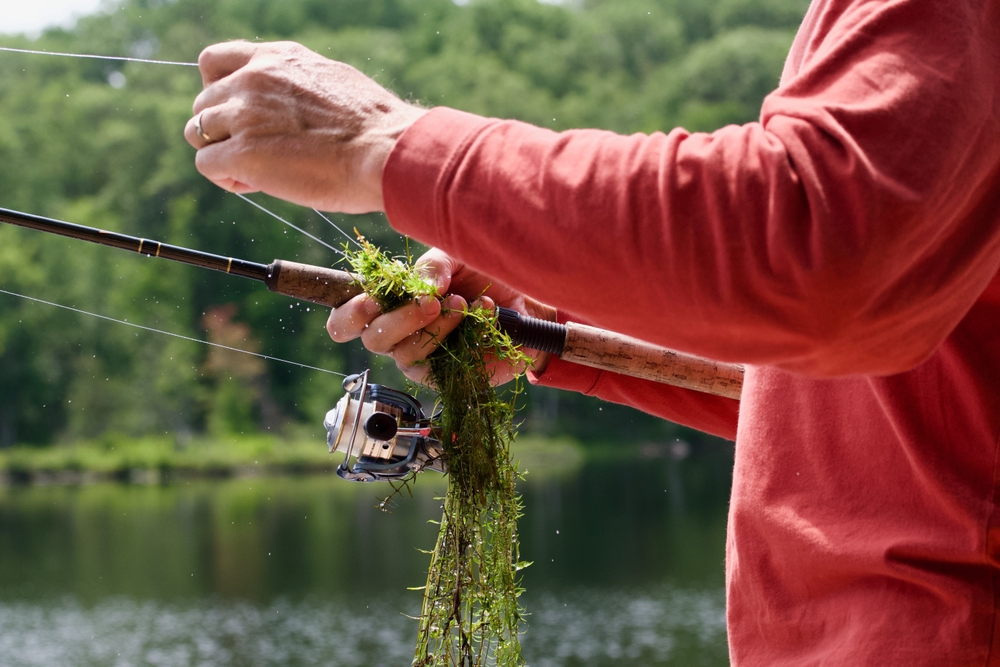
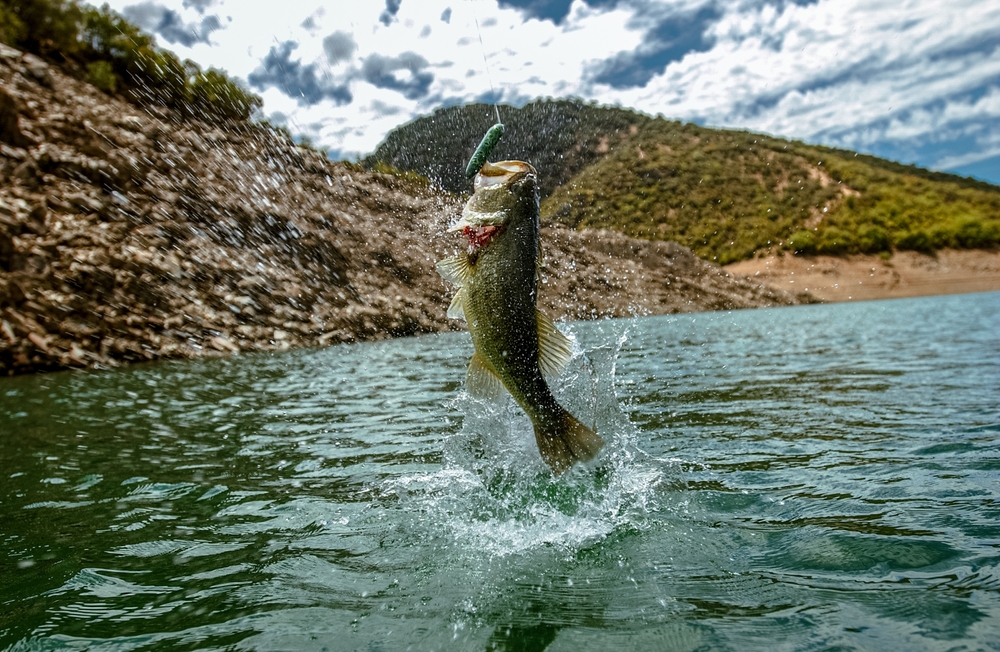
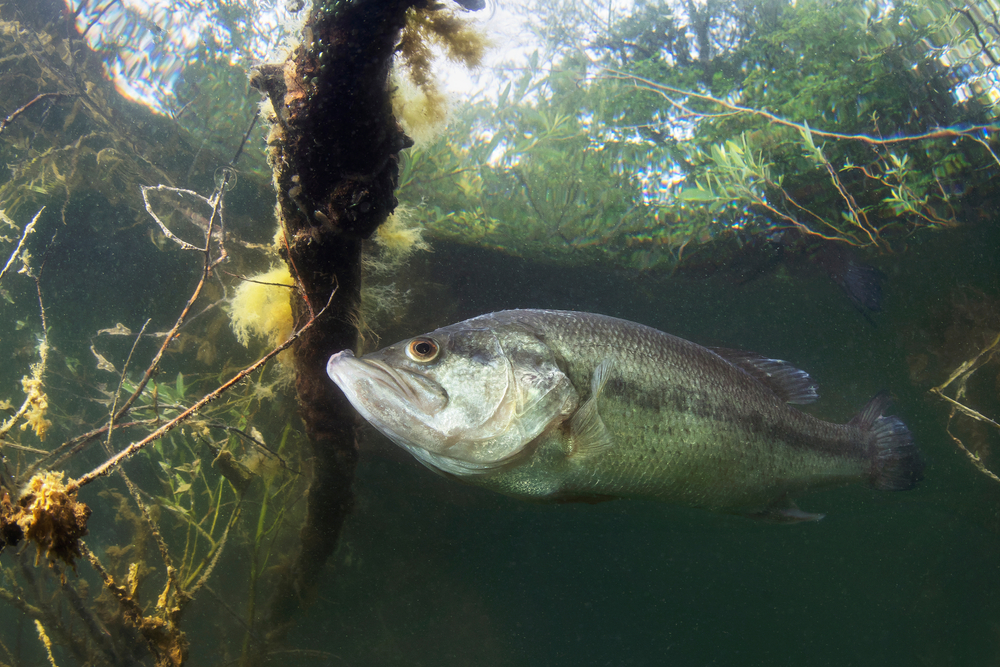
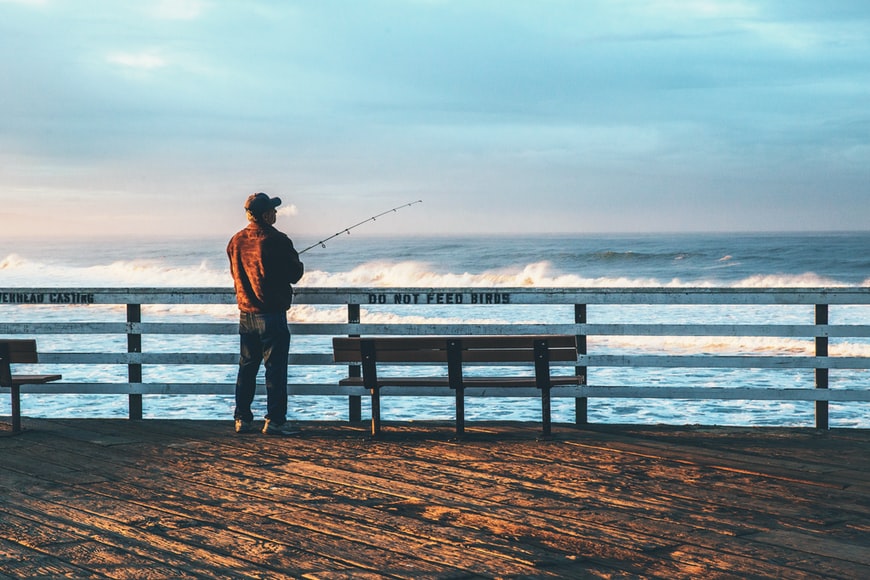
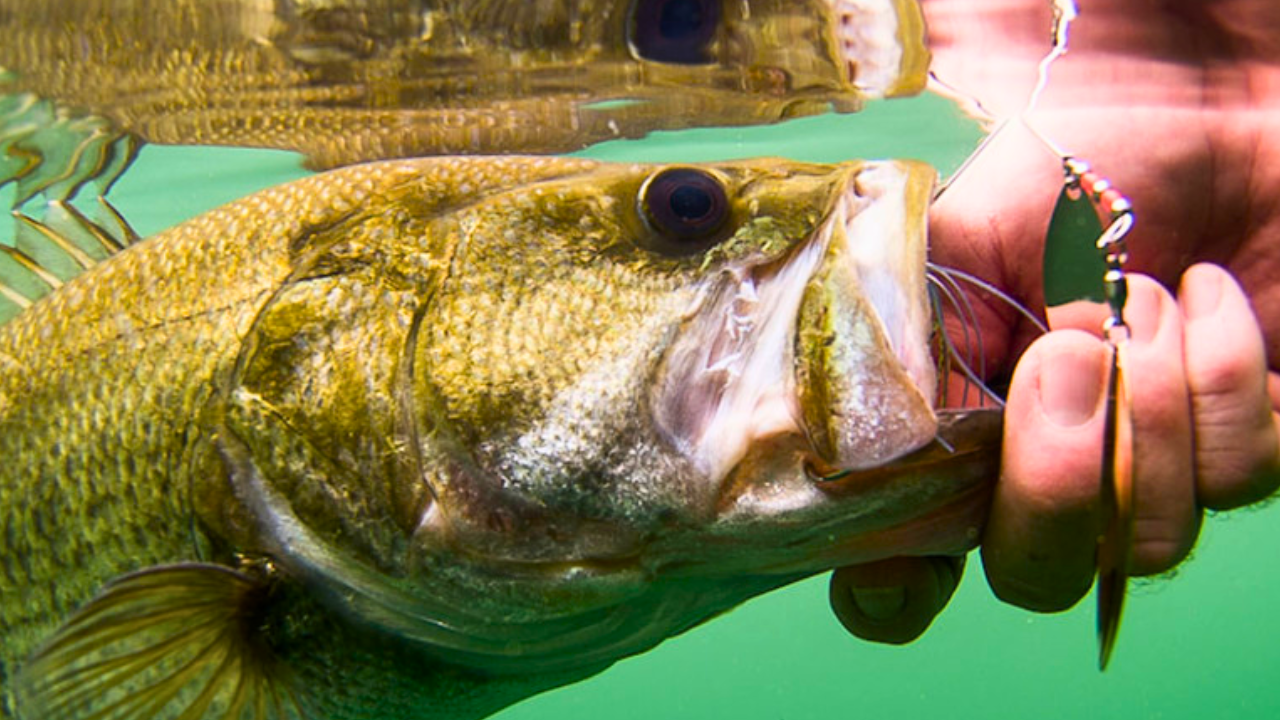
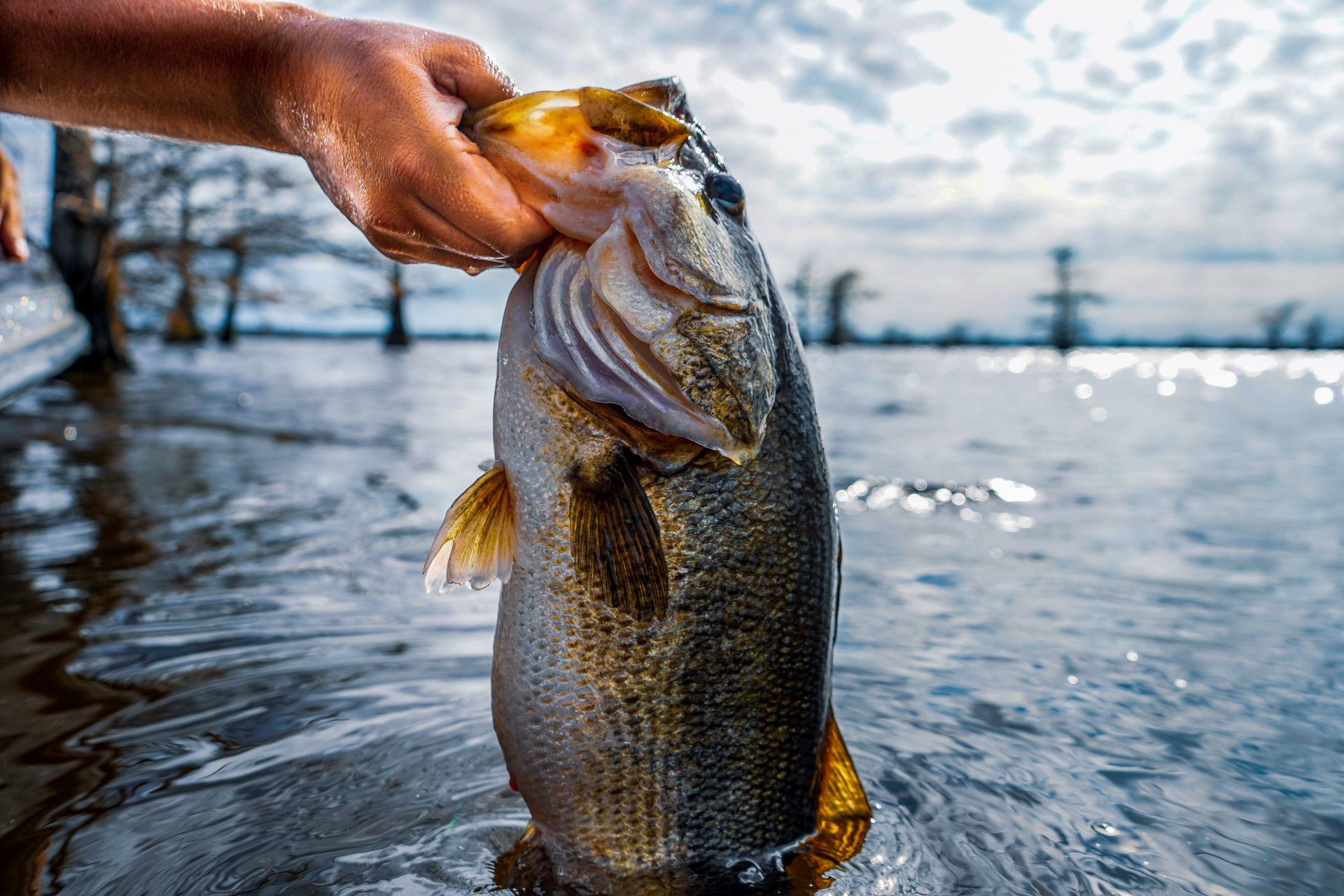
.png)
.png)